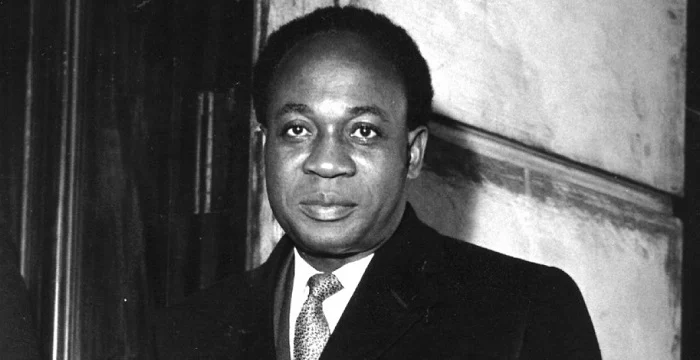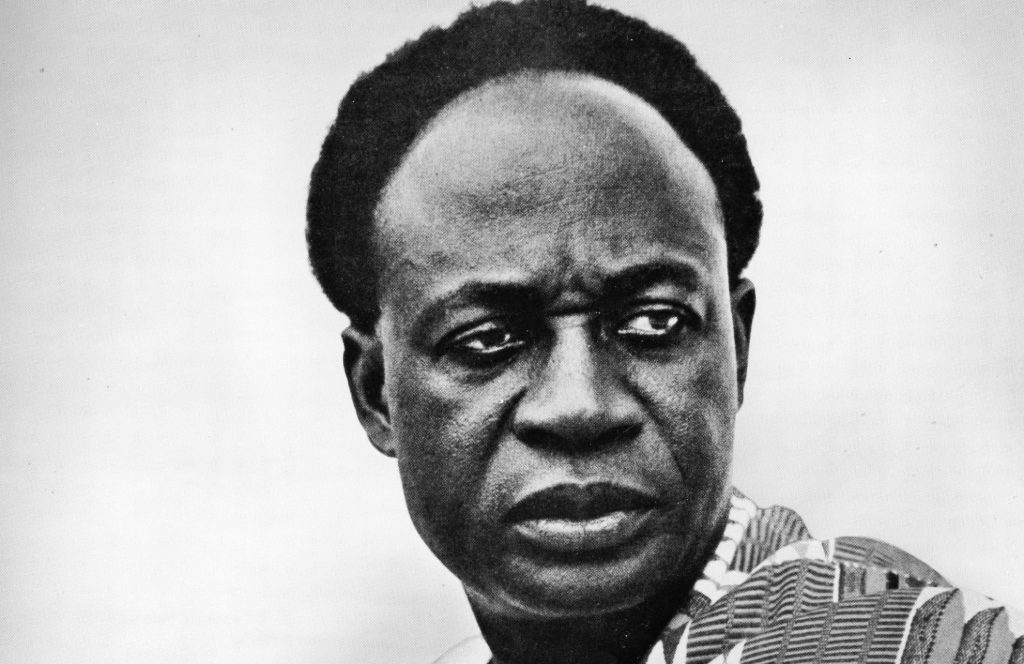Kwame Nkrumah was born on September 21, 1909, in Nkroful, a small village in the Western Region of what was then the British colony of the Gold Coast. He was the only child of his mother, Elizabeth Nyaniba, and was raised in a traditional matrilineal Akan family.
Nkrumah attended Achimota School in Accra, where he was exposed to Western education. After teaching for a few years, he pursued higher education abroad. In 1935, he traveled to the United States, enrolling at Lincoln University in Pennsylvania. He later earned degrees from Lincoln and the University of Pennsylvania, studying economics, sociology, theology, and philosophy. It was during his time in the US that he became deeply involved in political thought, particularly socialism and Pan-Africanism. He was influenced by thinkers like Marcus Garvey, W.E.B. Du Bois, and Karl Marx.
Activism and Return to the Gold Coast
While in the US and later in London, Nkrumah became an active voice in African nationalist movements. He joined the Pan-African Congress and co-founded several organizations aimed at ending colonial rule in Africa.
In 1947, Nkrumah was invited to return to the Gold Coast by the United Gold Coast Convention (UGCC), a nationalist movement seeking independence. He became the UGCC’s general secretary but soon split with its moderate leadership due to ideological differences.

Formation of the CPP and Political Mobilization
In 1949, Nkrumah founded his own party, the Convention People’s Party (CPP). Unlike the UGCC, the CPP advocated for “Self-Government Now” and employed mass mobilization tactics. Nkrumah’s charisma and appeal to ordinary people, especially workers, farmers, and youth, quickly gained him widespread support.
In 1950, he organized a “Positive Action” campaign—civil disobedience and strikes—which led to his arrest. However, he was released after winning a landslide victory while still in prison in the 1951 general elections. He was appointed Leader of Government Business, then Prime Minister in 1952 under the colonial administration.
Ghana’s Independence and Kwame Nkrumah’s Leadership
On March 6, 1957, the Gold Coast became the first sub-Saharan African country to gain independence from British rule. It was renamed Ghana, and Nkrumah became its first Prime Minister. In 1960, Ghana became a republic, and Nkrumah was elected as its first President.
Nkrumah declared that “the independence of Ghana is meaningless unless it is linked up with the total liberation of the African continent.” His government prioritized:
- Education: Expanded access at all levels and founded the University of Ghana and other institutions.
- Industrialization: Initiated infrastructure projects like the Akosombo Dam (for hydroelectric power), roads, and factories.
- Health and Housing: Built hospitals and launched public housing schemes.
- Pan-Africanism: Promoted African unity, hosted Pan-African congresses, and helped found the Organization of African Unity (OAU) in 1963.
Challenges and Downfall
Despite his achievements, Nkrumah’s presidency faced growing criticism:
- His government became increasingly authoritarian. In 1964, Ghana became a one-party state, and he declared himself President for Life.
- The economy struggled due to heavy spending, declining cocoa prices (the country’s main export), and state-run industrial inefficiencies.
- A cult of personality emerged, and political dissent was suppressed through laws like the Preventive Detention Act.
On February 24, 1966, while Nkrumah was on a peace mission to North Vietnam and China, his government was overthrown in a military coup. The coup was welcomed by many Ghanaians at the time and supported covertly by Western powers.

Exile and Death
After the coup, Nkrumah never returned to Ghana. He was granted asylum in Guinea by President Ahmed Sékou Touré, who named him Honorary Co-President of Guinea. Nkrumah continued to write and advocate for African unity from exile. His books include:
- Africa Must Unite
- Neo-Colonialism: The Last Stage of Imperialism
- Consciencism
He died of cancer in Bucharest, Romania, on April 27, 1972, at the age of 62. His body was later returned to Ghana and reburied in Nkroful before being moved to a mausoleum in Accra.
Legacy
Kwame Nkrumah remains a towering figure in Ghanaian and African history. His legacy includes:
- Being the founding father of modern Ghana
- Championing Pan-Africanism, which influenced the rise of liberation movements across the continent
- Inspiring global anti-colonial and socialist movements
- Leaving a mixed legacy—praised for his vision and leadership, but criticized for authoritarianism and economic mismanagement
Today, Nkrumah is officially celebrated in Ghana every September 21 as Kwame Nkrumah Memorial Day, and his ideas continue to influence African political thought.



